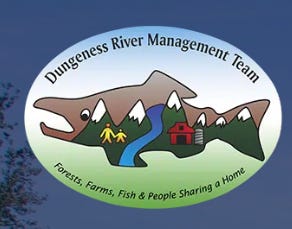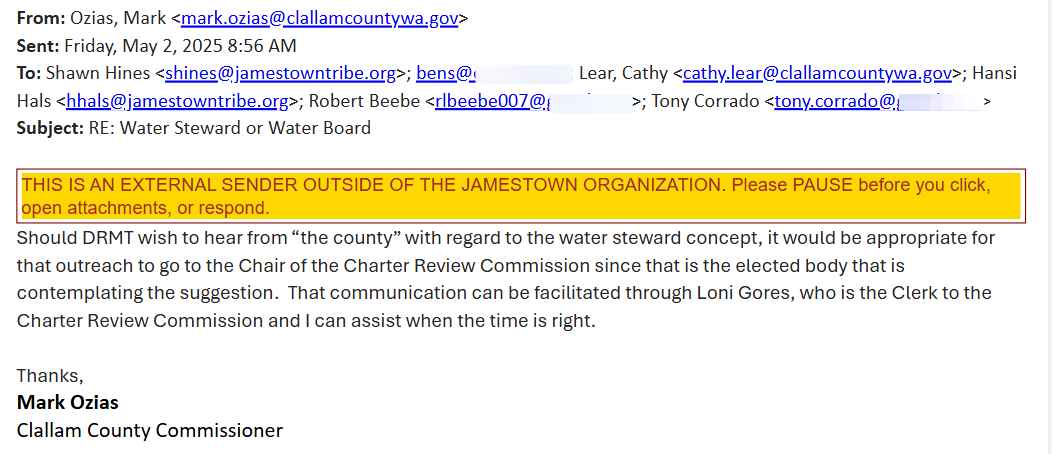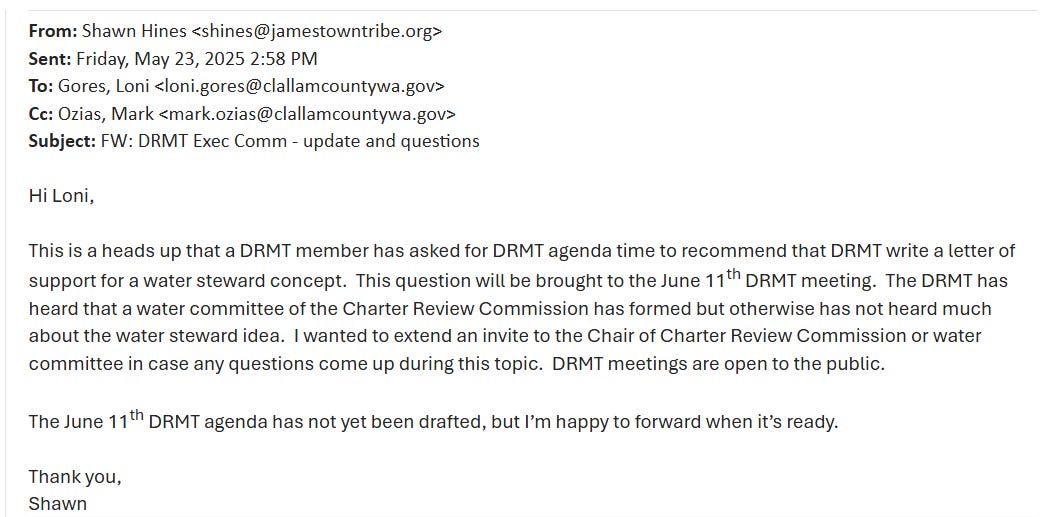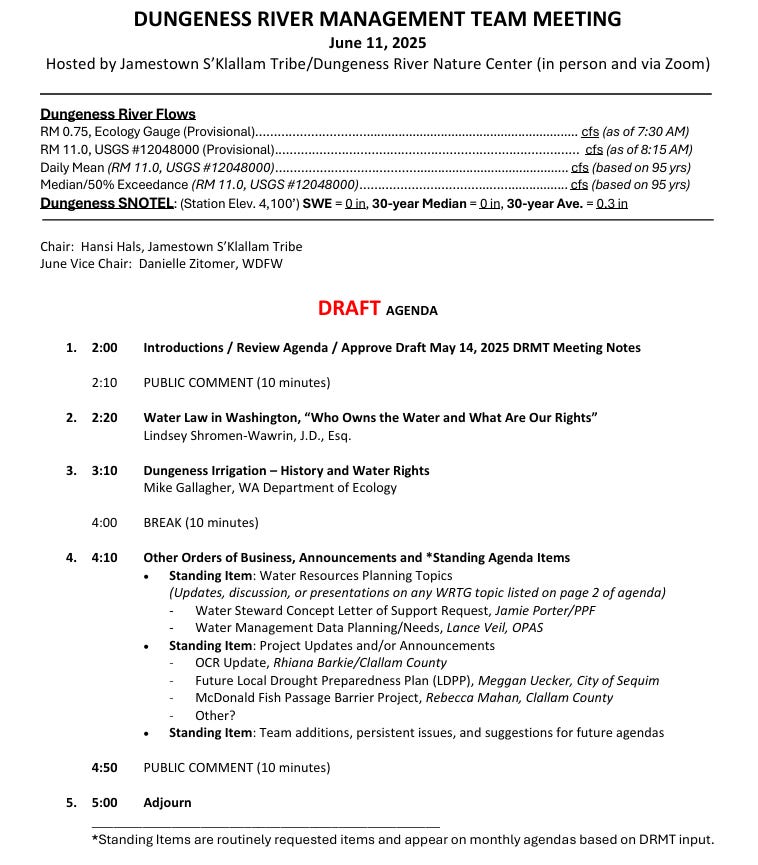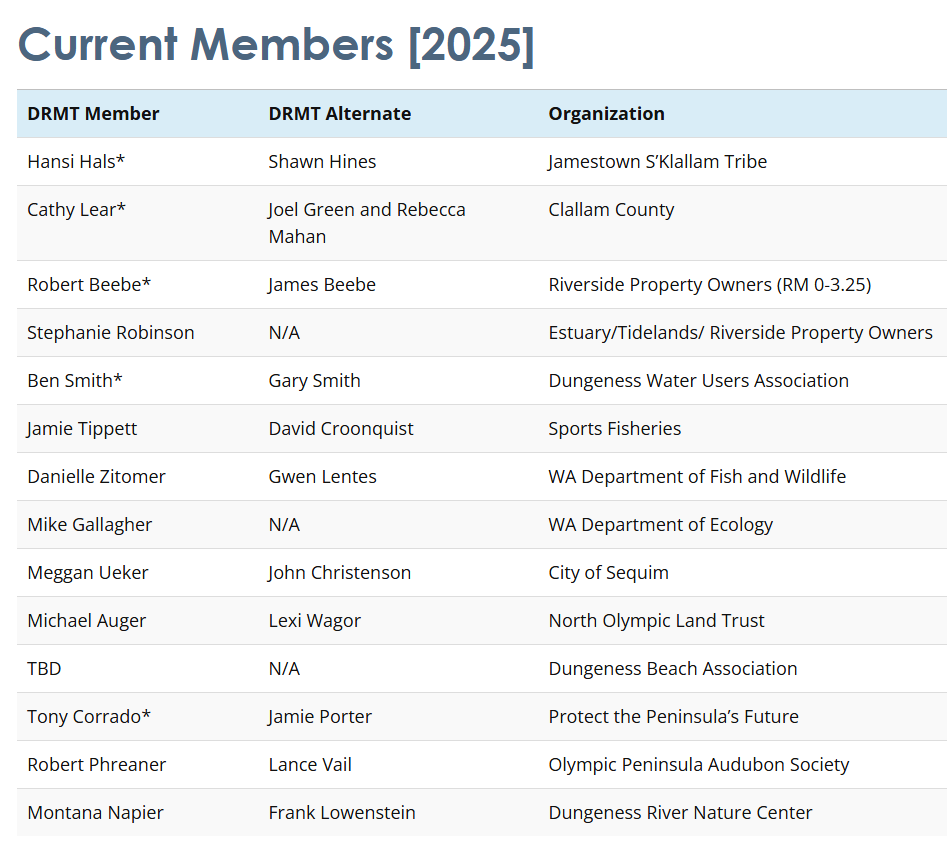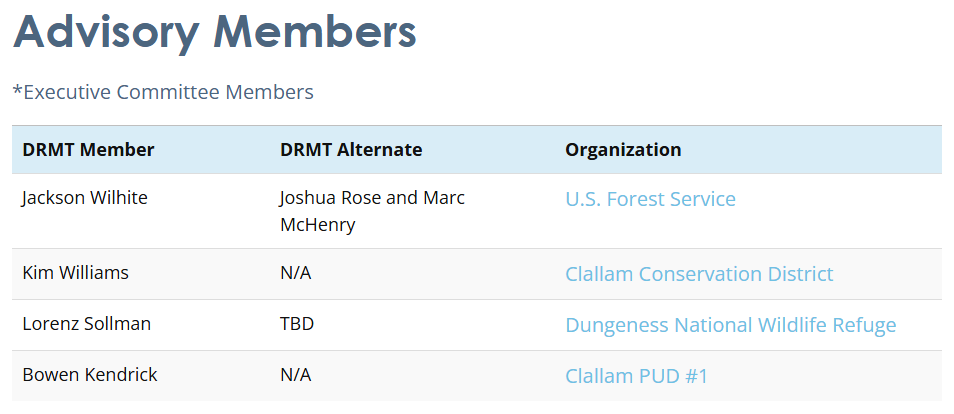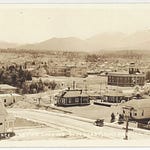A powerful coalition of government officials, tribal leaders, and environmental activists is advancing a controversial “Water Steward” position—potentially reshaping Clallam County’s control over water rights. With backroom coordination, conflicting roles, and rising public concern, residents are left wondering: who’s really calling the shots on our most vital resource?
The Dungeness River Management Team (DRMT) was originally founded as a partnership between Clallam County and the Jamestown S’Klallam Tribe to develop and implement local solutions for managing the Dungeness Watershed. Over the years, it has expanded to include representatives from influential nonprofits, environmental groups, and government agencies. With that influence has come power—and controversy.
Now, with some Charter Review Commissioners pushing to create a new bureaucratic role called the Water Steward, the Board of County Commissioners has largely stayed silent, as is appropriate. The Charter Review Commission (CRC) operates independently and serves as a direct line from residents to their government. CRC Commissioners are elected by district to review and propose changes to the County Charter and even make recommendations to the Board of County Commissioners.
That’s why it raised eyebrows when County Commissioner Mark Ozias stepped in to advise DRMT leadership on how to engage with the CRC. In a May 2 email, Ozias wrote:
“Should DRMT wish to hear from ‘the county’ with regard to the water steward concept, it would be appropriate for that outreach to go to the Chair of the Charter Review Commission since that is the elected body that is contemplating the suggestion. That communication can be facilitated through Loni Gores, who is the Clerk to the Charter Review Commission and I can assist when the time is right.”
Three weeks later, CRC members were informed that DRMT would be considering a letter of support for the Water Steward proposal:
“This is a heads up that a DRMT member has asked for DRMT agenda time to recommend that DRMT write a letter of support for a water steward concept. This question will be brought to the June 11 DRMT meeting... I wanted to extend an invite to the Chair of Charter Review Commission or water committee in case any questions come up during this topic.”
DRMT invited CRC Chair Susan Fisch—who also happens to serve as Secretary for the League of Women Voters, the main advocacy group promoting the Water Steward role—to present at the meeting.
A closer look at the June 11 agenda
The meeting takes place tomorrow, Wednesday, June 11, 2:00 PM, at the Dungeness River Nature Center in Sequim, which sits on sovereign tribal land. You can attend in person or via Zoom (contact shines@jamestowntribe.org for Zoom link).
Tomorrow’s agenda includes:
“Water Law in Washington: Who Owns the Water and What Are Our Rights?”
Presented by attorney and Port Angeles City Councilmember Lindsey Schromen-Wawrin, a vocal supporter of breaching the Lower Snake River dams to boost salmon populations.
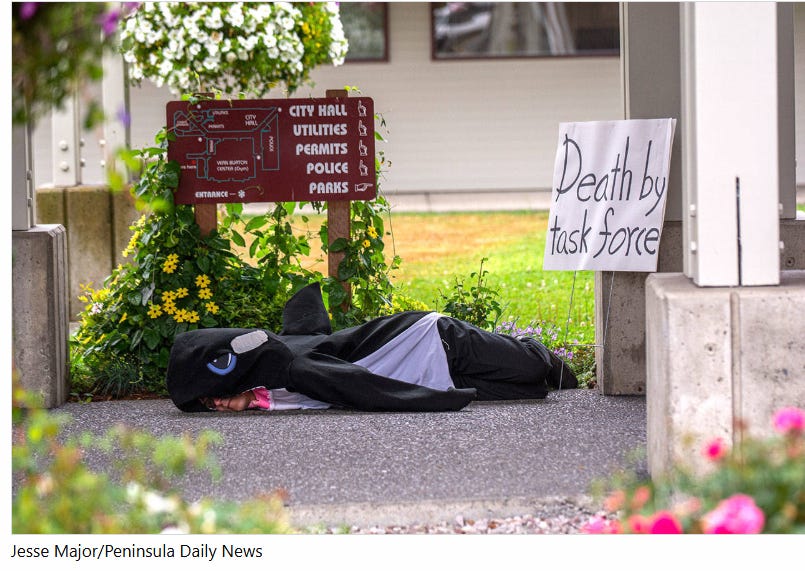
Washington Department of Ecology: History of Irrigation and Water Rights
A timely presentation, given recent threats of litigation from the Jamestown S’Klallam Tribe over open irrigation ditches—despite studies showing they help recharge aquifers.Letter of Support for Water Steward Concept
Presented by Jamie Porter, an alternate DRMT board member and representative of Protect the Peninsula’s Future. Porter previously denied involvement with the Dungeness Levee Trail Advocates (DLTA), which lobbied to turn Towne Road into a park—at the Tribe’s suggestion. Only after state records showed she co-founded DLTA did she admit involvement. She also recently lobbied the Sequim City Council to ban the city’s fireworks display. Transparency remains an ongoing concern with Porter.
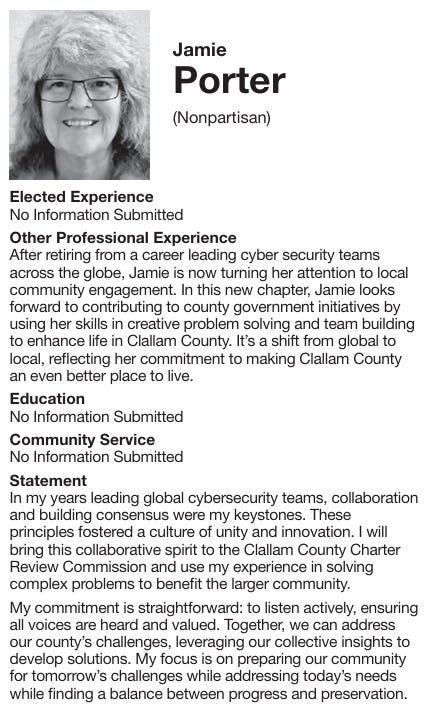
Who's really at the table?
A look at the current DRMT roster reads like a who's who of Clallam County water politics:
Meggan Uecker (City of Sequim) – Spoke during the 2024 drought presentation
Cathy Lear (Clallam County) – Oversaw the Towne Road relocation and Lower Dungeness Floodplain Restoration
Hansi Hals (Jamestown S’Klallam Tribe) – DRMT Chair and natural resources director, who has declined to answer CC Watchdog questions
Tony Corrado – Connected to both the League of Women Voters and Gates Foundation operative Craig Smith, pushing hard for the Water Steward role
Ben and Gary Smith – Local generational farmers who rely on irrigation to stay in business
North Olympic Land Trust – Previously planned a workshop that determined coastal property owners should be removed from their homes and offered below-market value compensation
This mix of government employees, nonprofit organizers, and tribal officials collectively wields considerable power—often beyond the public eye.
Why it matters
As the Charter Review Commission deliberates whether to formalize a Water Steward position, residents should be asking: Who benefits? Who decides? And who pays the price?
With water rights in the crosshairs—both surface and underground—a growing alliance of sovereign nations, state agencies, and unelected organizations is quietly reshaping the rules.
The best business model is simple: Control a limited natural resource, and you control the future.
Clallam County residents need to be paying attention—before their water, property rights, and representation disappear downriver.



